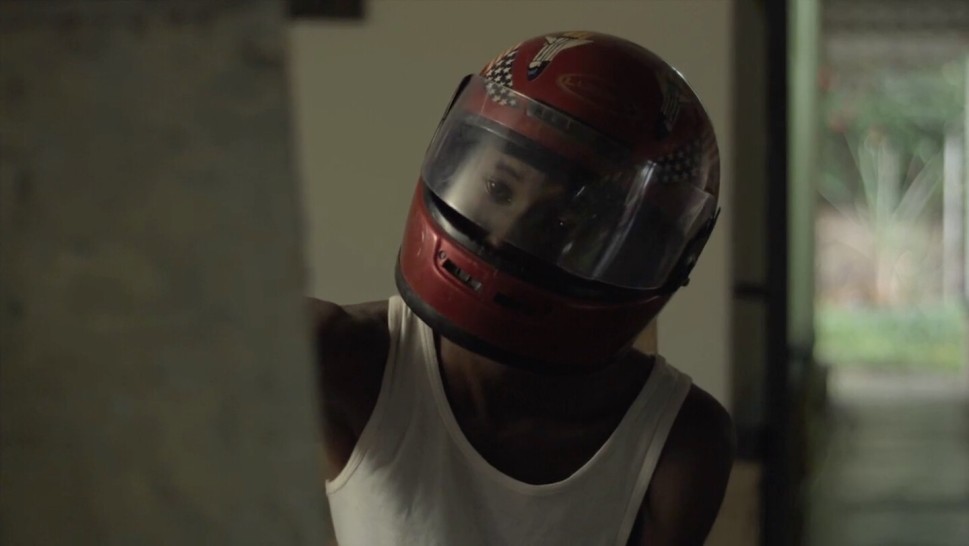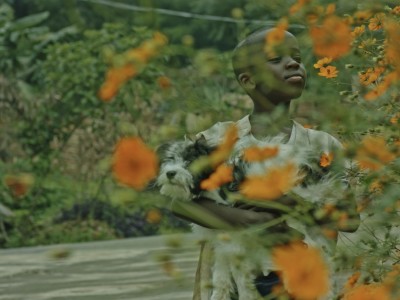
Grey Matter
(Matière Grise)
$15 Special Event Tickets
With Ramadhan Bizimana, Tamim Hakizimana, Kennedy Jones Mazimpaka.
Rwanda, 2011, DCP, color, 110 min.
Kinyarwanda and French with English subtitles.
DCP source: Filmmaker
Ruhorahoza’s first feature is akin to a manifesto film in its announcement of several important axes of his cinema, including the ghost of the genocide and reflexivity about and interrogation of the means, stakes, meaning and political economy of cinematic representation. In it, Kivu Ruhorahoza asks the Adornian question: can and should we create after genocide, in a context of national and continental trauma, in the omnipresence of the memory of an open-air genocide? Can and should art exist after genocide? If so, under what conditions? How do we repair trauma after 1994, even of those who were not physically present during its unfortunate unfolding?
The film also offers one of the most cardinal formal propositions of his work: a predilection for a segmentation of his films in parallel structures (often three). Part one focuses on a filmmaker struggling to obtain funding and equipment to make a film in Rwanda after the genocide. Part two centers around a madman who may have been one of the perpetrators of the genocide or who reverse psychologically plays the role of the perpetrator in order to cope with the resulting trauma. Part three is devoted to two orphans of the genocide, a brother and sister whose parents were tortured, murdered and their corpses burnt. Unable to live in the present, the brother finds refuge in wearing a biker helmet, constantly reliving the trauma of his parents’ demise.
One of the refreshing dimensions of Ruhorahoza’s work is that he does not take the work or means of representation for granted. He seeks to effect a profound reflection upon their various dimensions, such as the question of the status of the real, the role of the imaginary, the function of trauma, representational politics, ethics, economics, philosophies, justice. This reflexivity extends beyond the Rwandan post-genocidal context and embraces the very political economy of African cinema, and, indeed, of all cinema as such. What price to pay for a genuinely auteurist cinema? For creative independence in general?













